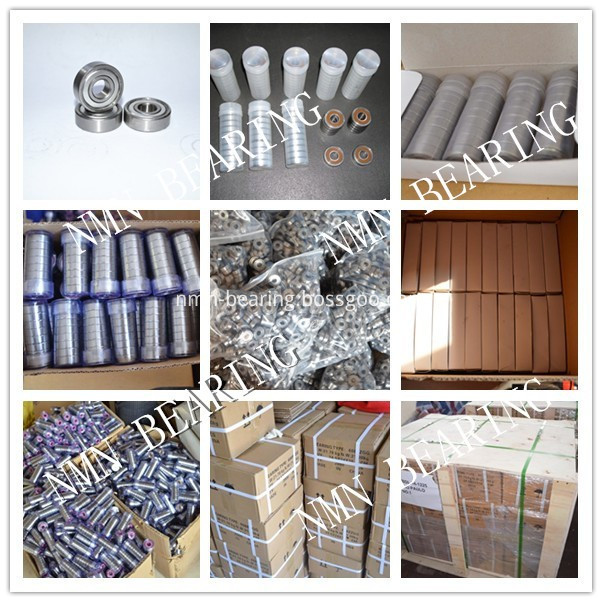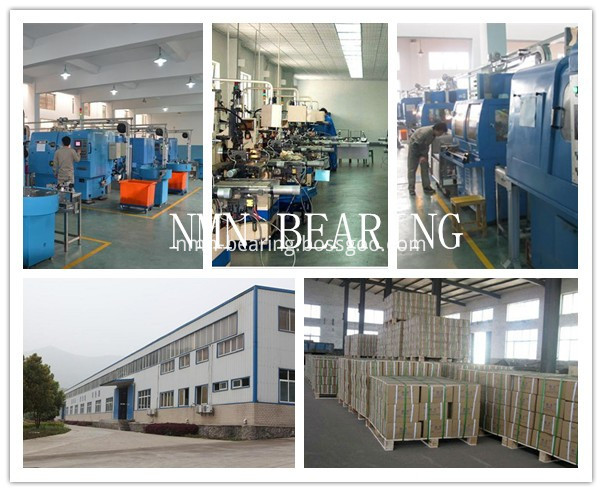On May 27, the General Office of the Ministry of Transport announced the "Notice on Promoting the Orderly Development of Taxi Calling Services for Mobile Phone Software Calls, etc." (Draft for Comment), and publicly solicited opinions. The opinion draft stipulates many problems in the taxi software: management of the distribution and use of the driver terminal software, and gradually realize the unified access management of the taxi call service, and the taxi driver must not pick up and use the mobile phone during the driving process. And the company's market incentive plan must communicate with the transportation department in advance. On May 28th, Didi Taxi Software Co., Ltd. stated that it had prepared a feedback form and prepared it for submission to the Ministry of Transport. Release of opinion drafts helps protect passenger rights For the government to formulate a unified code for taxi software, Li Yang, a Suzhou citizen who often takes a taxi, said that whether it is a taxi software or an in-vehicle terminal, the "safety" of passengers is the first priority. Li Yang told the China Youth Daily reporter that the local taxi car platform also needs the driver to grab the order manually. Every time the driver hears the prompt tone, he has to go to see the contents on the screen. Some drivers also use the mobile phone software to grab the order while pulling the work. The safety of passengers and drivers is not guaranteed. "The driver looked around and saw that I was flustered." In response to the security issue, the consultation draft clearly stated that “the taxi driver must not pick up and use the mobile phone during the driving process. If the mobile phone is used to query or answer the call business, the vehicle should stop and the traffic safety should not be affected. At the same time, it is also emphasized that “the realization of instant call demand information can only be pushed and broadcast to empty taxisâ€. Zhao Siwen, director of the Drip Taxi Department, said that the taxi has GPS positioning, and there is an empty vehicle identifier in the car. It is technically difficult to grasp the driver’s idling situation and push information to the empty taxi. To ensure the safety of driver passengers, the company will actively cooperate with further technical research and development. The consultation draft also focused on regulating the driver's use of a series of behaviors. If it is not allowed to increase the price, it is not allowed to use or answer the mobile phone while driving; it is not allowed to pick up passengers in the waiting area at the airport, railway station, etc. Wang Limei, secretary-general of the China Road Transport Association, pointed out that the mobile phone calling software has brought convenience to some people, and it also affects the convenience of taxi riders through other means. In her view, the Ministry of Transport’s request for these requirements helps to ensure equal rights for all passengers. If you do not increase the price, it will help to standardize the service; let the driver concentrate on driving, reducing the safety risks. As long as the technical information is effectively controlled and managed, there is no need to worry that the driver is busy rushing to order the passengers, and the follow-up supervision is omitted. Zhao Siwen told the China Youth Daily reporter that “there is a need to encourage the development and use of new answering and answering hardware facilities that meet the safety regulations and facilitate the operation of the driverâ€, and the use of DDT taxi software is insufficient. The company is also considering making technological improvements. Zhao Dehai (a pseudonym), a taxi driver of Beijing Xinyue United Automobile Co., has been driving a taxi for 8 years. He is more concerned about whether the taxi company will give incentives to drivers in the future. Not long ago, “Drip†and “Fast†have stopped the subsidy for passengers, but they still retain the reward for the driver. This time, the draft for the opinion stipulates that enterprises should communicate with the city's transportation authority on the 10th in advance of the market incentive plan, and announce the implementation standards and time limits of the incentive plan to the public 5 days in advance. In this regard, Drip Taxi understands that in the future, companies will need to communicate and report in advance to reward or subsidize passengers or drivers. Previously, “Drip†and “Fast†heavily subsidized passengers and taxi drivers who used taxi software to “burn moneyâ€, which attracted a large number of people to download and use the taxi software in a short period of time. Wang Limei pointed out that such incentive subsidies cannot be regarded as market-oriented behaviors. On the surface, taxi drivers and passengers who use taxi software enjoy subsidies, but they bring unfair service and objectively adversely affect the service market order. The government should be cautious and regulate the specific practices of rewards. “We want to know who the taxi is for.†Wang Limei believes that if the taxi only serves passengers who use the taxi software, it is not necessary to subsidize in the market competition, but the taxi is to serve the wider public. This includes users who do not use taxi software, so there should be uniform and fair market rules. Zhang Guohua, dean of the National Development and Reform Commission's Urban Center Comprehensive Transportation Planning Institute, also said that companies rely on incentive subsidies to compete for market share, which is not a long-term solution. As a market-oriented enterprise, sustainable development should be considered. Competition should not rely on subsidies, but should rely on providing more efficient and high-quality services. From "unordered" to "with rules" Zhao Siwen said that the introduction of the draft for comment also affirmed the legal status of taxi software in the taxi market. In his view, the taxi software was born more than two years ago, and the growth was not smooth. From first-tier cities to second-tier cities, taxi service operators receive regulatory requirements from different regional transportation departments almost every once in a while. “The different types of supervision proposed by different cities make us feel confused.†Wang Xin, vice president of Didi Taxi Co., Ltd., has been looking forward to a unified standard. “The establishment of a unified standard is conducive to market development.†The staff of the fast taxi company also felt that the frequent changes in local policies on the supervision of taxi software are very unfavorable for user use and enterprise development. Liu Peng, an associate professor at the School of Public Administration of Renmin University of China, said that in the previous stage, local governments introduced regulatory measures for mobile phone calling software, but the measures were different in degree, content was different, and controversy was caused by lack of authority. Therefore, it is necessary to standardize and standardize at the national level. "There is a certain rule, it is the responsibility of the government." Wang Limei pointed out that this made the taxi software changed from a "disorder" to a "rule." Wang Limei believes that the government's formulation of uniform requirements, on the one hand, can promote the technical progress and service standards of the taxi industry; on the other hand, it also gives the name of the taxi software. “The taxi software needs to serve the public on the premise of compliance.†Despite recognizing the government's practice of standardization, taxi companies have also raised different opinions on some of the provisions in the draft. In response to the feedback from the Ministry of Transport, Didi Taxi said that the company agreed with the "unified access management" solution, but had different opinions on the unified vision of broadcasting by the vehicle terminal. The fourth point in the draft for comments is clearly to “progressively realize unified access management for taxi calling servicesâ€. And put forward: "The competent transportation departments of all localities should strengthen the unified access and management of taxi call-to-call services, and gradually realize the call-to-car demand information proposed by various methods such as manual telephone call, mobile phone software call, and network car. The unified city taxi car call service platform runs and is pushed to the unified vehicle terminal broadcast (the unified vehicle terminal can be bound to the driver terminal software and realize information synchronization)..." Wang Xin, vice president of Didi Twist, said that on the one hand, they feel that the meaning of running through a unified telecall service platform is not clear. Does “unified operation†mean “unified schedulingâ€? This is what they are worried about. The bigger concern is that the unified vehicle terminal means that the driver can no longer use the mobile phone software to receive instant orders, and erases the technical mode of the mobile phone to mobile phone "mobile phone to mobile phone". To this end, Drip Taxi Company proposed to cancel the regulations on the unified vehicle terminal, allowing the coexistence and development of the “mobile phone to mobile phone†and “telephone to car†modes. The fast taxi company said that it hopes to introduce more market mechanisms and accelerate scientific and technological progress, because the draft for comments is still in the stage of collecting opinions, and the company has not released too many opinions. Should the telegraph platform be speeded up and updated? As early as some local governments moved out of their own regulatory measures, some industry experts explained the drawbacks of using the telegraph platform and the vehicle terminal to push and push - which is not conducive to the use of users, and is not conducive to market competition. It is recommended to adopt the current "Beijing mode". In the state of keeping the mobile phone software in normal scheduling, the driver is allowed to use the mobile phone software, and the transportation department establishes a unified platform for management. Zhang Guohua, dean of the Comprehensive Transportation Planning Institute of the National Development and Reform Commission, pointed out that based on the deep integration of mobile Internet and traditional mobile phone calling business, the innovative development has produced mobile phone calling software. Through the "mobile phone to mobile phone", direct contact between passengers and taxis, while improving service efficiency and level, also reduces operating costs. “Our marginal cost is almost zero.†Wang Xin has said that increasing or decreasing a call order will not increase the cost of taxi software. Wang Limei believes that it is not without benefits to adopt a unified platform. At present, the number of taxi drivers registered in each taxi software is impossible to cover the entire city. However, the inclusion of the city's unified call service platform can ensure the full coverage of the number of taxis, thereby improving efficiency. Wang Limei further pointed out that at present, when the technology of the call-to-service platform is backward and emerging technologies are constantly emerging, the call-up platform should be speeded up and replaced, thus facilitating the use of different groups. “The elderly can call, young people can use mobile phones, and multi-party appeals are integrated into the unified platform to effectively leverage the advantages of the call-up platform.†Liu Xingliang, dean of the DCCI Internet Research Institute, believes that if the telegraph platform and connected vehicle terminals fail to meet the needs of users in terms of precise positioning, push speed and vehicle success rate, it is likely to cause the abandonment of passengers and drivers. Considering the current construction speed and service level of local telegraph platforms, the Ministry of Transport has proposed a “transition plan†in this opinion draft, that is, the local transportation authorities are completing the upgrade and transformation of the taxi call service platform and vehicle. In front of the terminal equipment, the calling software can be temporarily used in the taxi. Wang Limei believes that this is a humanized arrangement that takes into account the unbalanced development of the car platform between cities. She suggested that the government can contribute capital and increase the input of human and material resources on the platform. However, Zhang Guohua believes that investing more financial resources to build and upgrade the telegraph platform is not the choice of market allocation resources. It is understood that the traditional electric call construction uses one city to establish one or more electric call centers, and its supporting is to establish vehicle terminal equipment, data resource system, monitoring command system, and call service system. In the early stage, the investment in software and hardware equipment was large, and all the order scheduling required to be completed manually, and the operating expenses in the later period were also quite a lot. The construction of a telegraph platform includes vehicle terminal equipment fees, vehicle GPS information service fees, manual seat costs, and office space fees. “Who is this pen cost? Government, software company or taxi driver?†Zhang Guohua said. "From the historical perspective of innovation and development, the advantages of competition in the past will become the negative assets of the future." He said that mobile phone taxi software will eventually replace the traditional call. Some experts pointed out that the draft for comment has proposed that local governments should speed up the upgrading of the telegraph platform and vehicle terminal equipment to meet the requirements of the development of new service methods such as mobile phone software, but whether there is a need for uniform standards in the technology, the transportation department has not yet made Detailed description. Liu Peng, an associate professor at the School of Public Administration of Renmin University of China, believes that the requirements put forward in this consultation draft are within the scope of the government's reasonable supervisory functions, but some normative content is more general and lacks specific standards for implementation. Further defined.
Hebei Naimei Bearing is specialized in manufacturing various bearings, especially deep groove ball bearings. As a professional bearings manufacturer,we are able to provide a full range of bearings, including different sizes, materials, and types. You can learn more about us through the following content. We can customize Miniature Ball Bearings according to customer's drawing or sample and we can also print customer's LOGO on the miniature ball bearings.Except the ball bearings,we have electric motor bearing,ceiling fan bearing and so on.
Advantage of our company: 1. More than 10 years industry experience 2. Accept OEM serivce, customization, Customer's logo 3. Professional technical support 4. Good ability of cost control to make our price competitive
Product Photos:
Packing:
1 Industry package: 200pcs/plastic bag, 2000pcs /carbon , 50 cartons/pallet ,
Packing Photo:
Shippment:
Workshop:
Exhibition:
6200 Series Deep Groove Ball Bearing 6200 Series Deep Groove Ball Bearing,High Speed Motor Bearing,Motorcycle Bearing 6200,Automotive Ball Bearings 6201 Hebei Naimei Bearing Co., Ltd. , http://www.nmn-bearing.com



2 Tube Package: 10PCS/tube,then put in Carton and Pallet
3 Single Package: 1PC/single box, then put in Carton and Pallet
And also we can pack according to your requirement.



